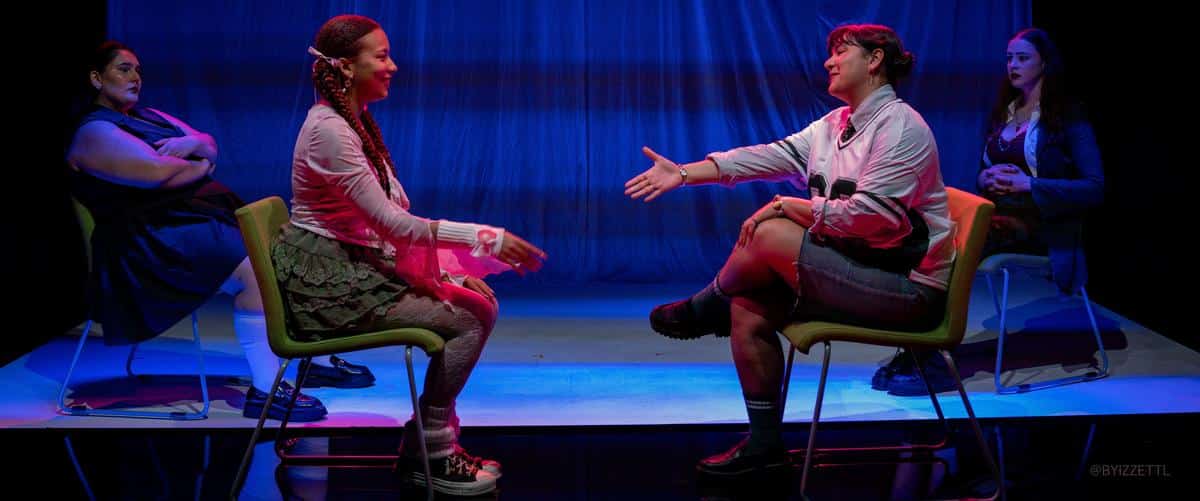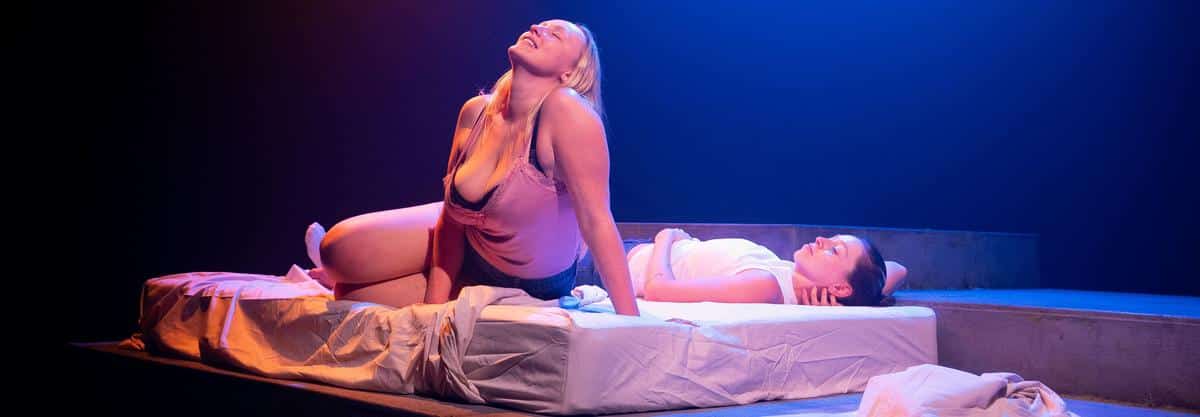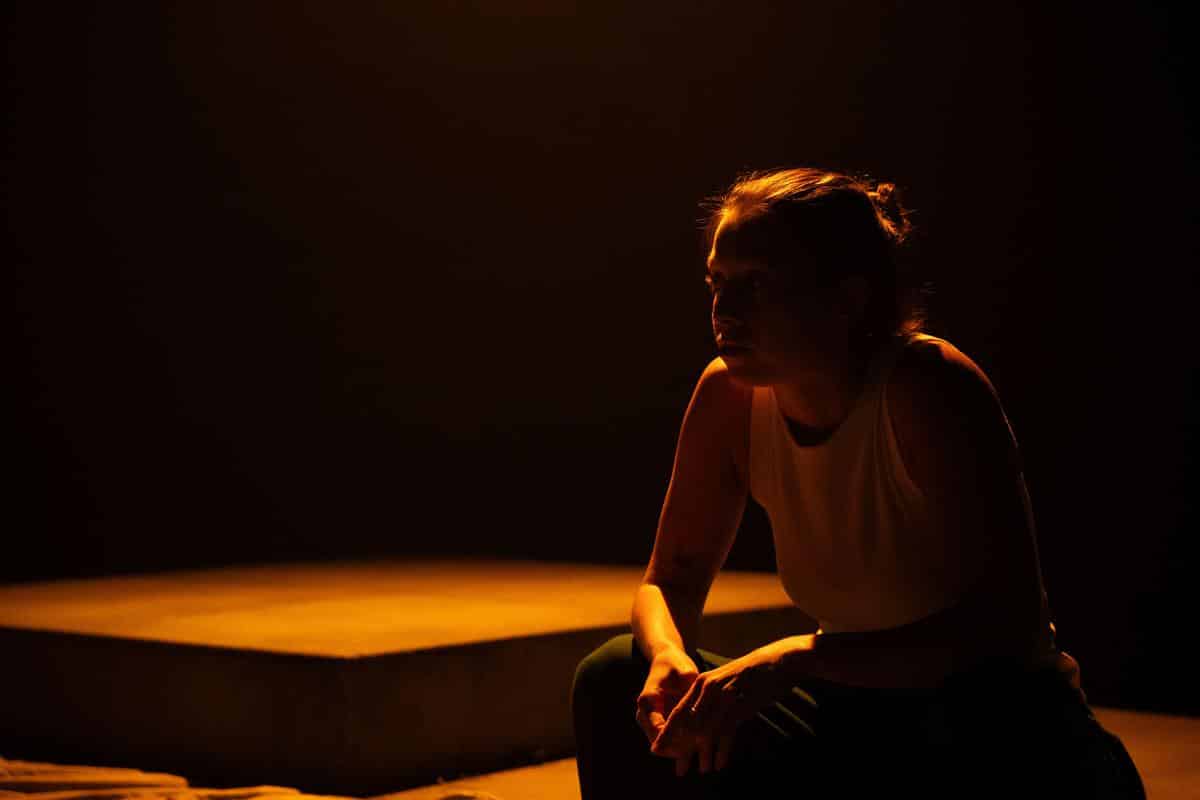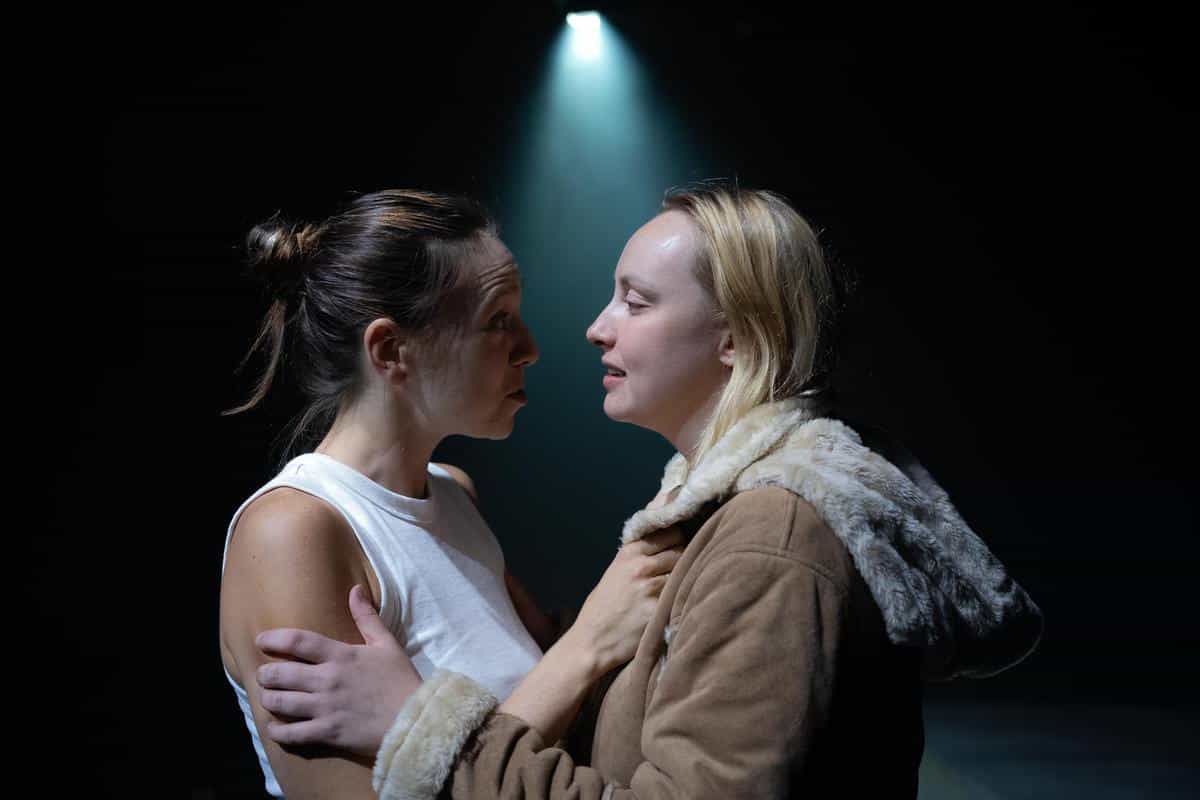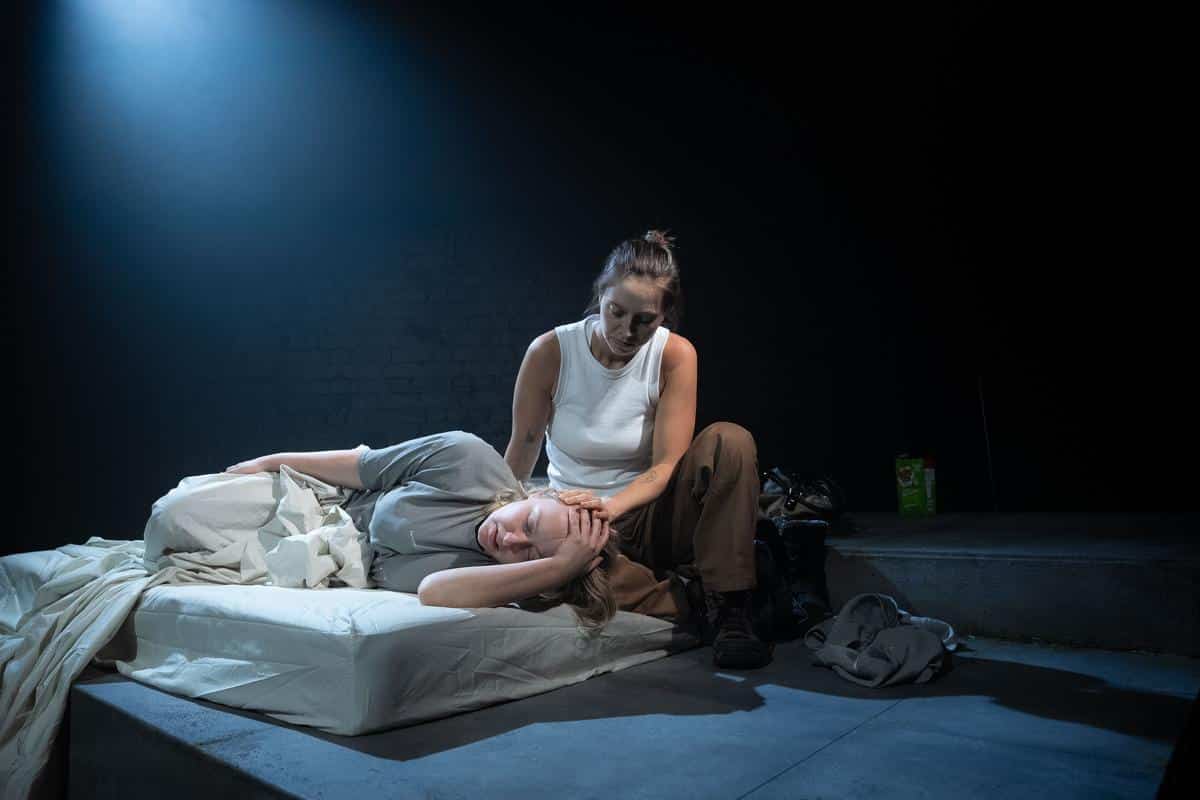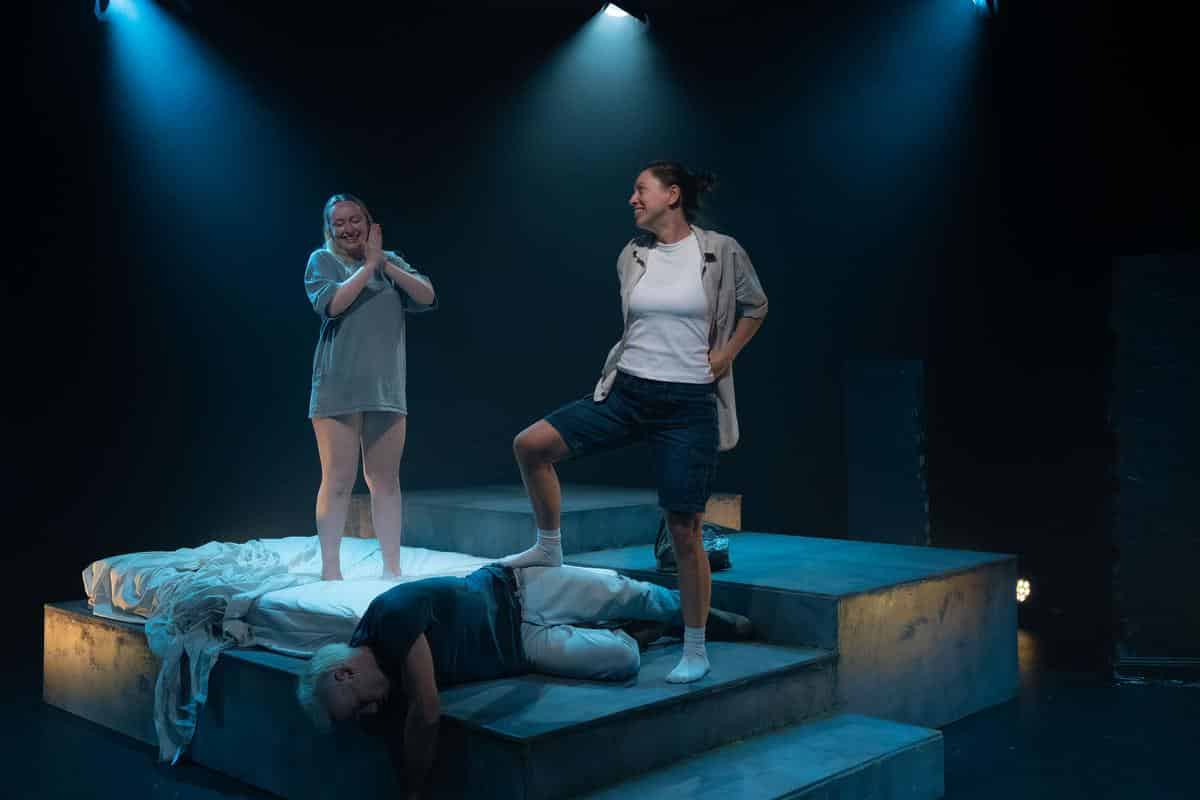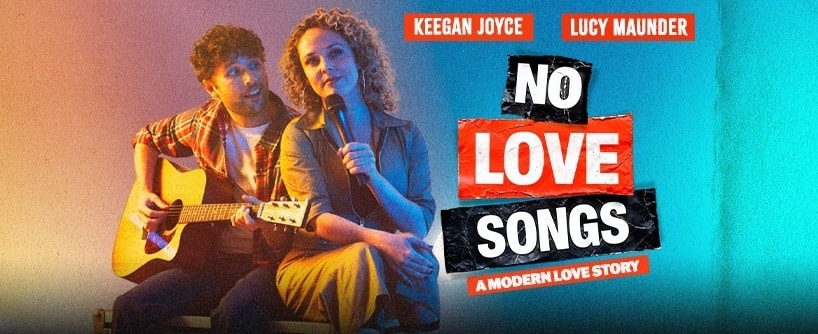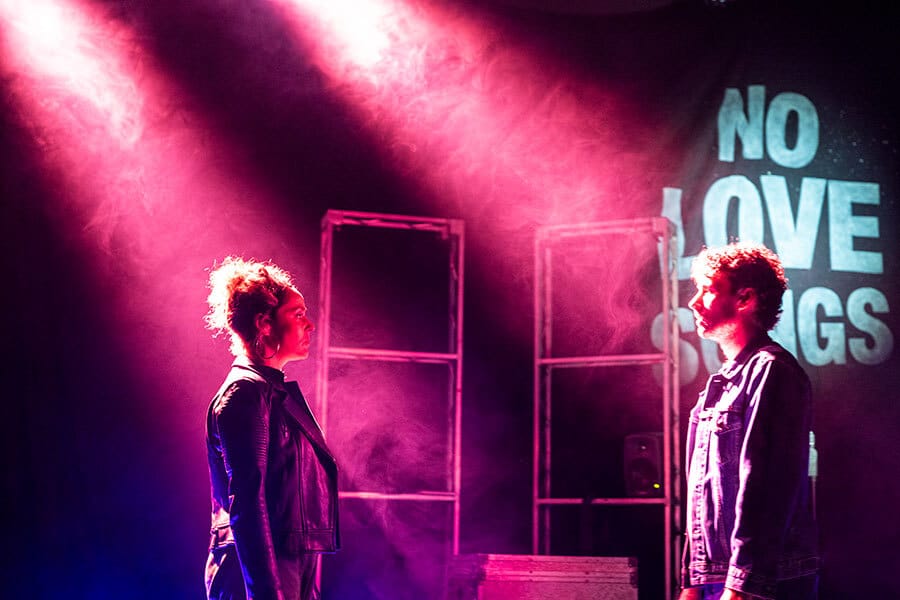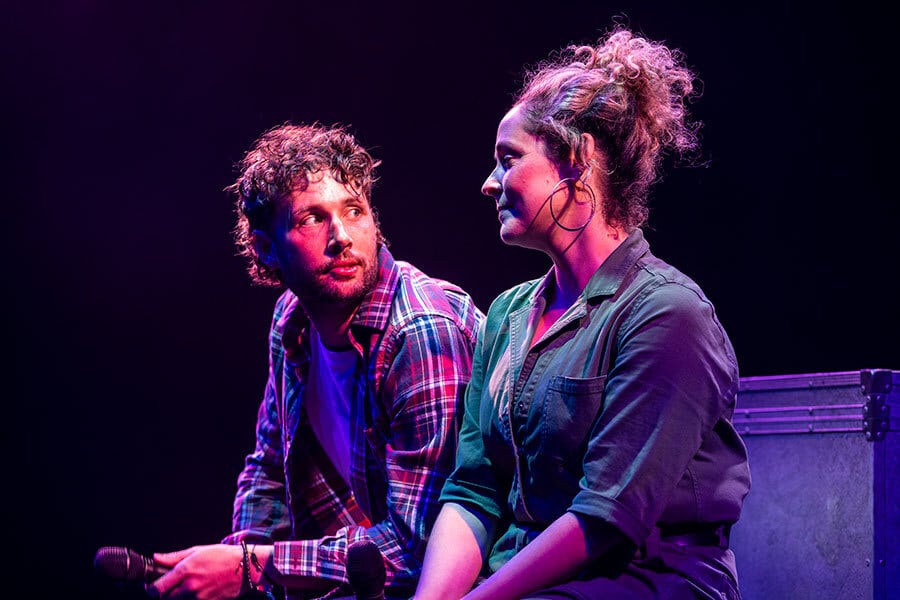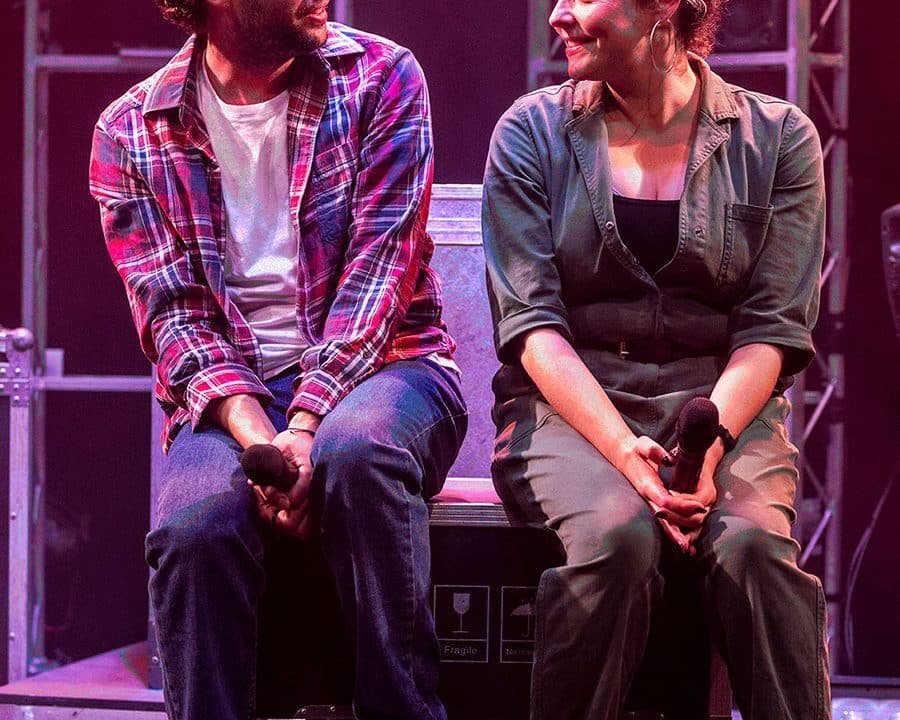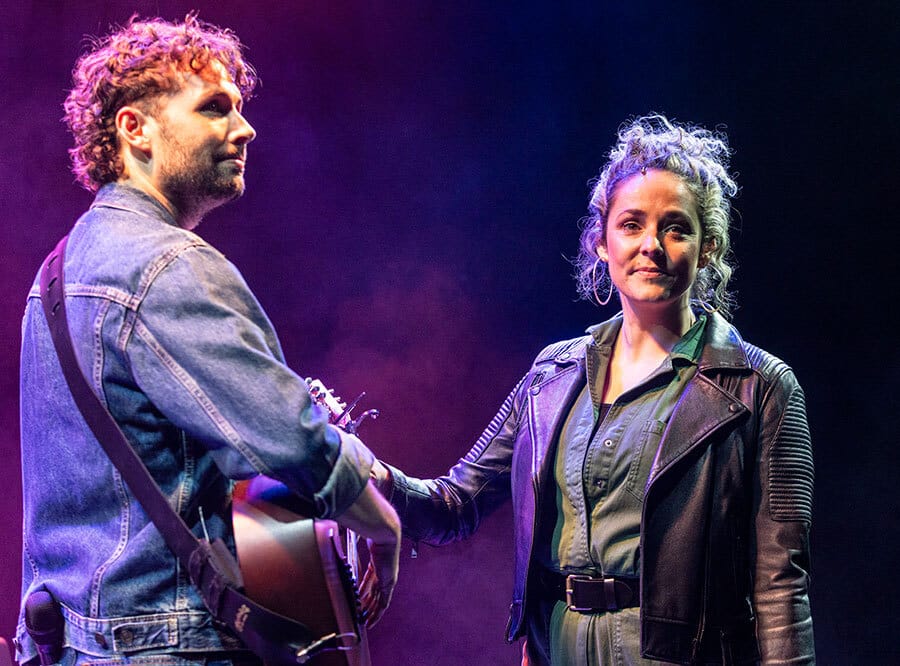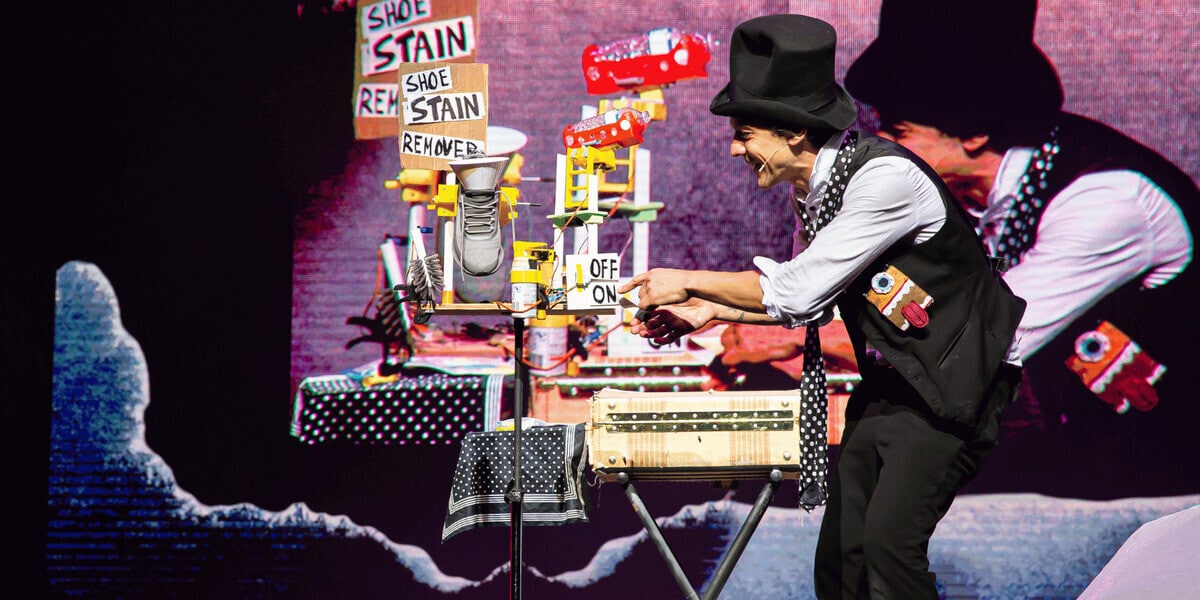What happens when you put four lesbians in a room with the iconic cast of Twilight, Glee legend Sue Sylvester, and extremely polarising politician Pauline Hanson? Well, a terrific game of Kiss, Marry, Kill, of course!
And the killing doesn’t even remotely stop there. Slay is a political horror comedy where those same four lesbians are being targeted by a killer after someone they know suddenly disappears. One-by-one the girls start to fall victim to the mysterious killer (who is a slay themselves in their dazzling costume).
As the story progresses, it is also intercut with two further narratives of storytelling – the segmented manifesto of an intense political party (SLAM), run by lesbians who are tired of cis men leading the world, as well as renditions of different social media platforms and their associated rabbit-holes of misinformation.
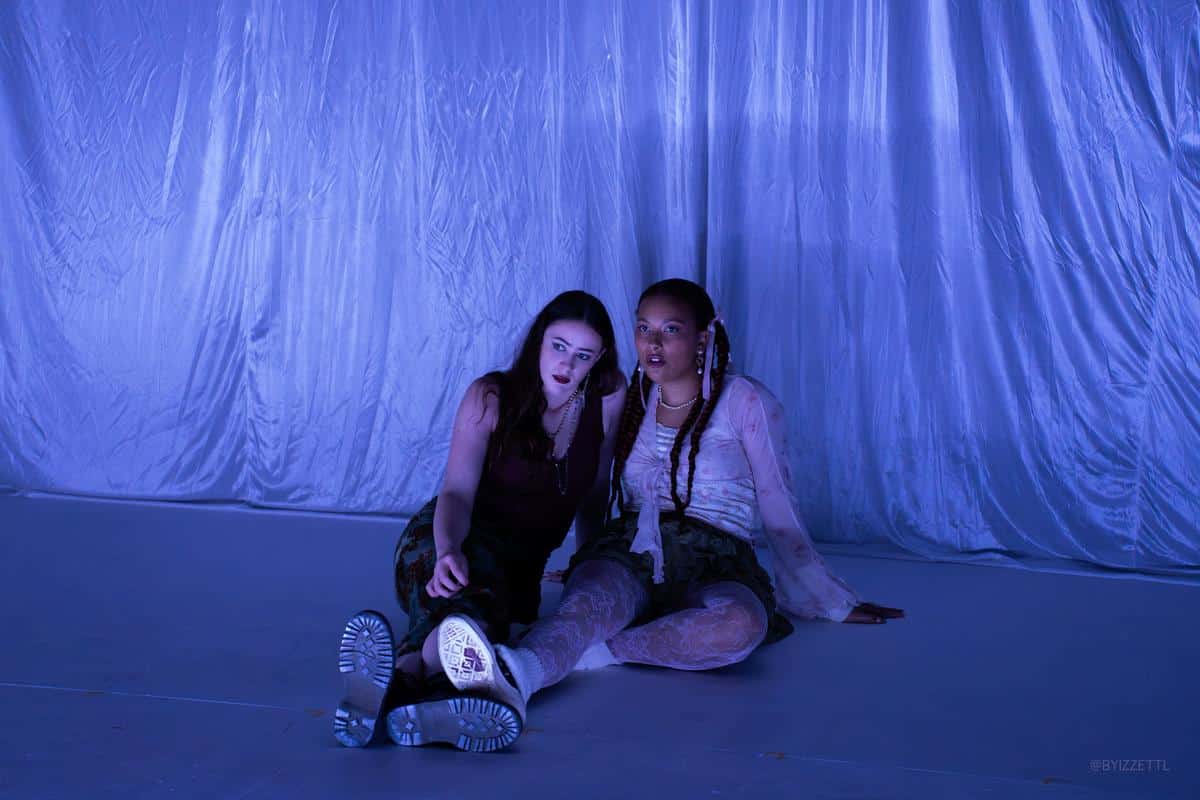
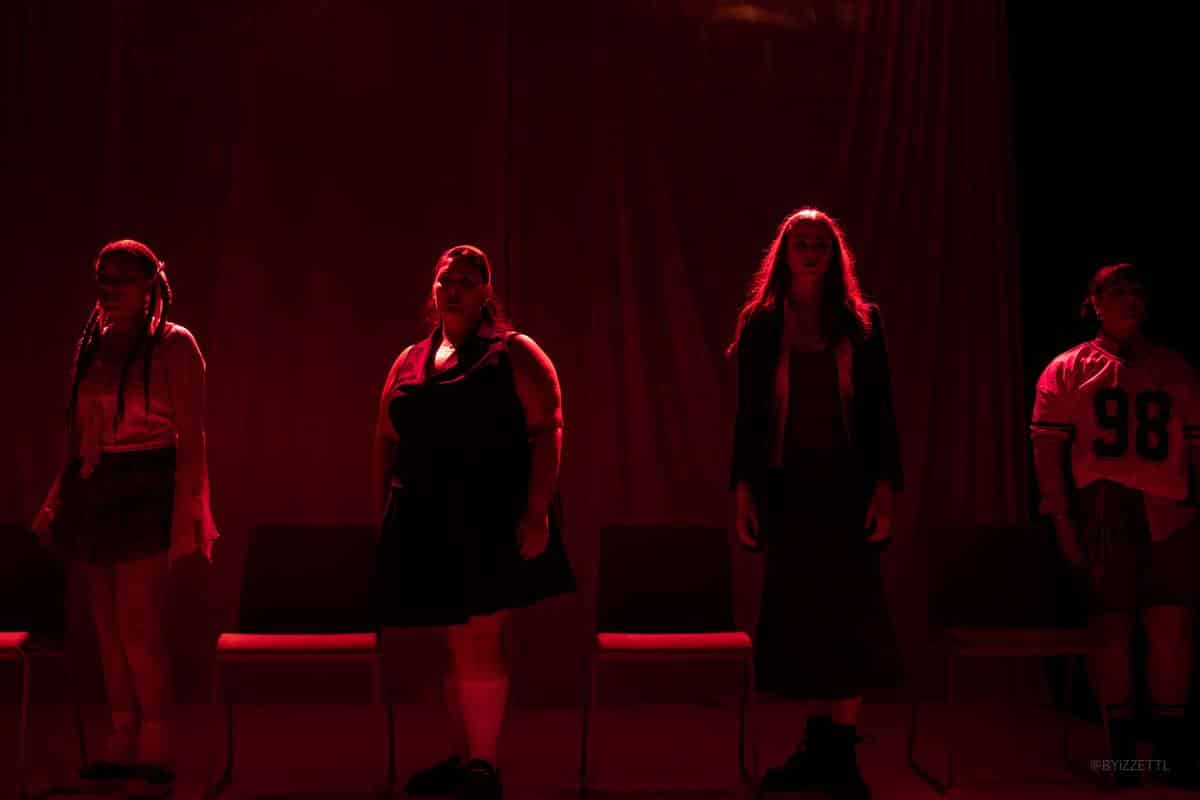
As the cast portrays an array of bizarre individuals that you would find in a Reddit thread or being asked for their ‘hot takes’ on a subway for TikTok – they are sandwiched tightly between the other polarising narratives taking place. It mirrors this generation’s low-attention span habit of scrolling through phones, playing a game, and watching TV all simultaneously. And though you are bombarded by aspects of the show, there’s a perfect amount of satirical comedy and pop-culture references in the mix for it to be an enjoyable smack in the face.
The four actresses of the production, Raven Rogers-Wright (as Ziggy), Jackie van Lierop (as Jessica), Anita Mei La Terra (as Cora), Louisa Cusumano (as Valentina and Kiki) are an excellent ensemble throughout each of the sub-stories. Rivalling classic casts of campy horror favourites, such as Scream and Scream Queens, they all work together with such an infectious energy that gives the show a lot of life, which is ironic given the death surrounding them.
Particularly during an unforgettable and passionate round of Just Dance, Anita Mei La Terra (Cora) completely smashes her dance moves in style. And the way the game is incorporated into the stage design flawlessly while the scene unfolds, leaves the crowd in hysterics and tears.
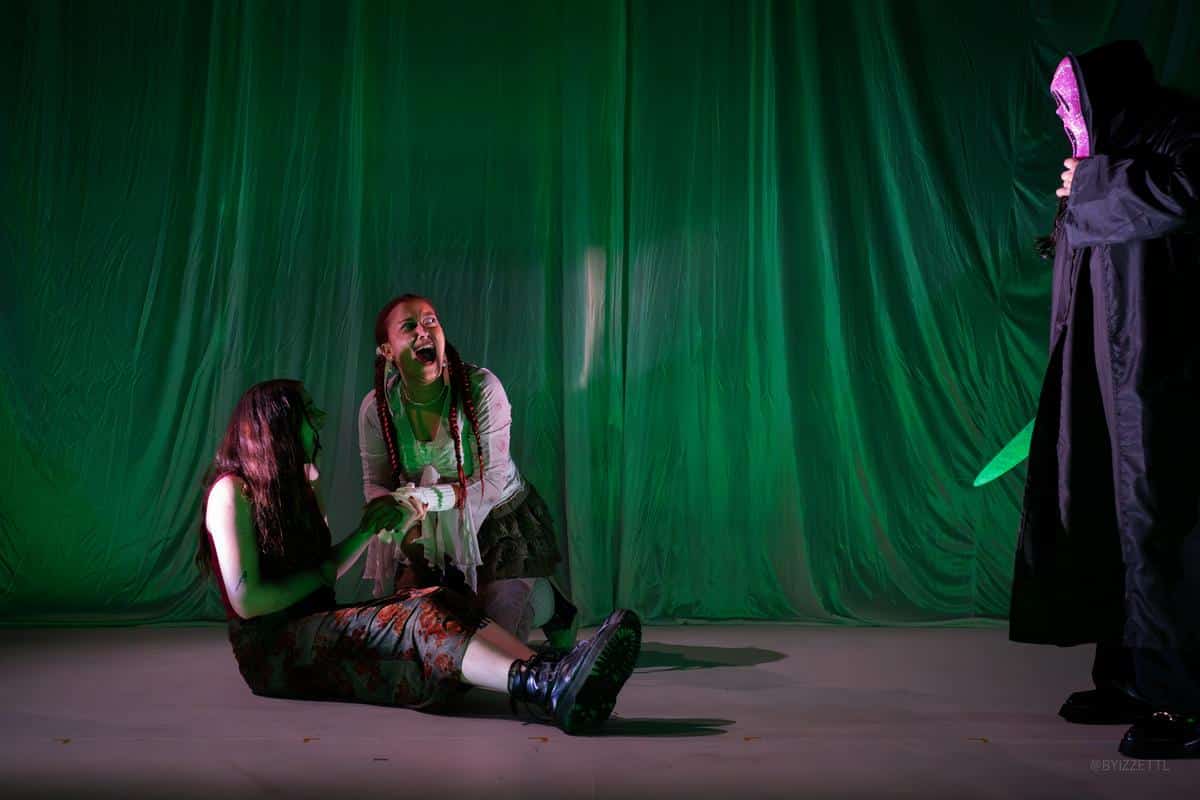
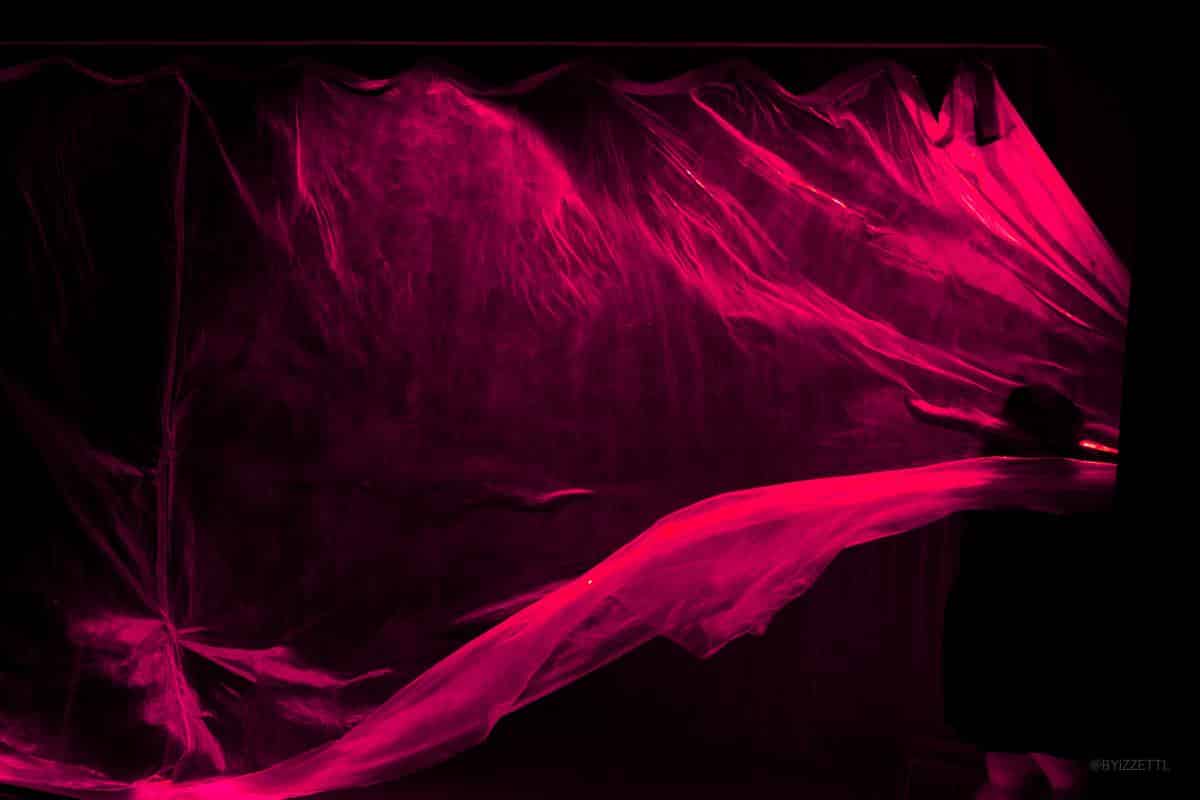
Continuing to kill in terms of the production design and lighting, the crew was able to make the small stage feel so much larger and dynamic with just a scarcely sheer sheet behind the stage, which was a joy to watch. It led to depth through projections onto the sheet and scenes occurring through it. The only thing the set lacked was a way to raise any floor-based scenes higher for more audience visibility. Even though the seating was tiered, the view was often obstructed for scenes like the opening slumber party game, which was a bummer when it was so entertaining.
The biggest takeaway though was that the director Steph Lee, and her fellow cast and crew creatives that worked to construct Slay, are ones to watch for the future. If this is the unique, succinct, and enjoyable material you get to consume from this team, it won’t be hard to return.
This political campy slasher was perfectly devised for the stage. It would make you fight to be the ‘Final Girl’, just so you can be the last one standing and watch it all.
To book tickets to Slay, please visit https://www.theatreworks.org.au/2025/slay.
Photographer: ISABELLA ‘IZ’ ZETTL
